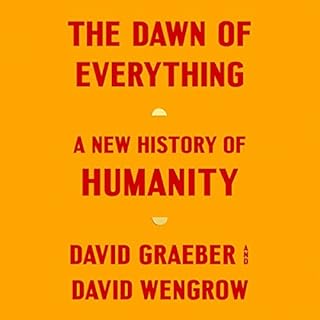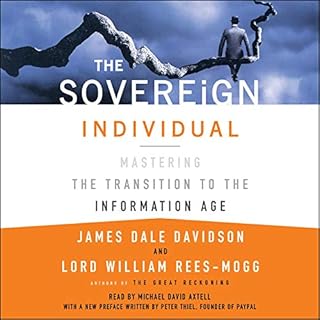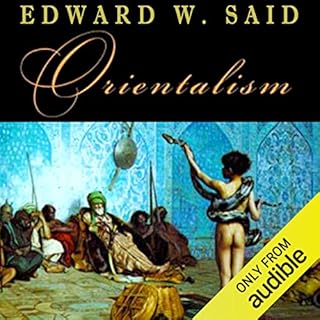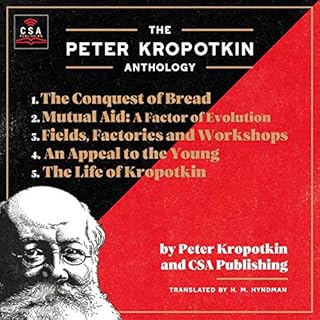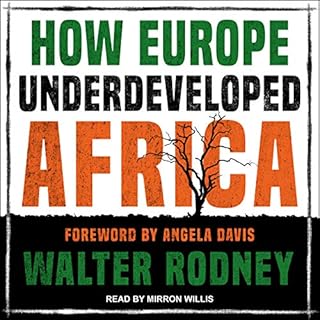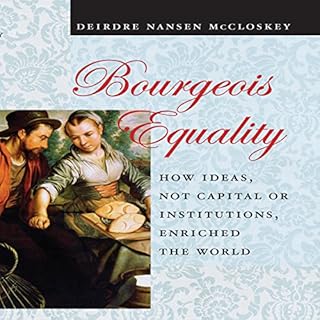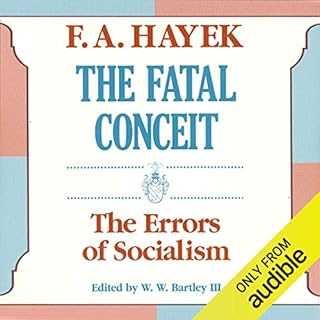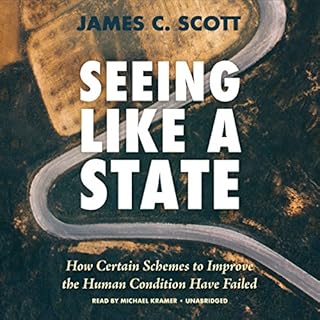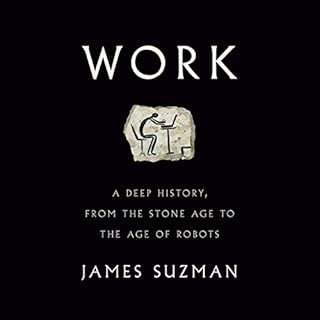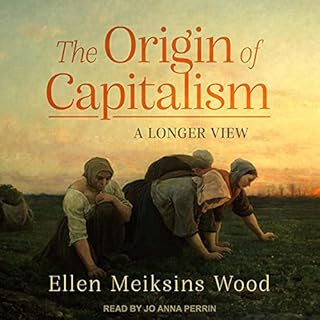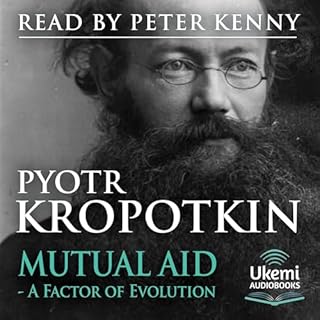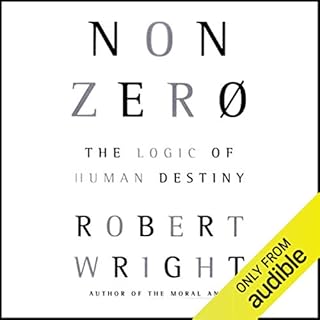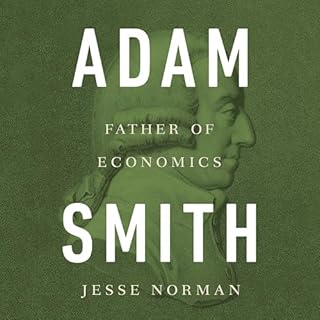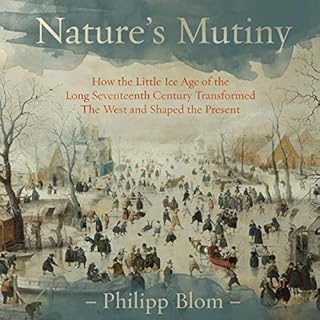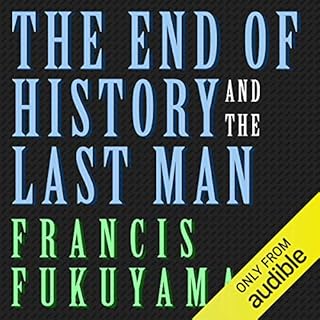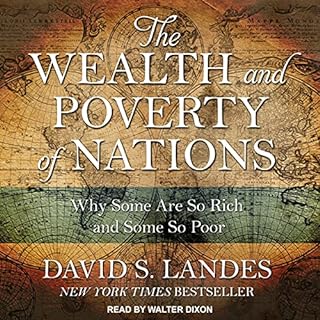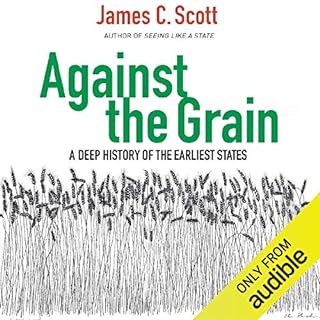
The Invention of Scarcity
Malthus and the Margins of History (Yale Agrarian Studies Series)
Failed to add items
Add to Cart failed.
Add to Wish List failed.
Remove from wishlist failed.
Adding to library failed
Follow podcast failed
Unfollow podcast failed
 Prime members: New to Audible?
Prime members: New to Audible?Get 2 free audiobooks during trial.
Buy for $17.49
No default payment method selected.
We are sorry. We are not allowed to sell this product with the selected payment method
-
Narrated by:
-
Suzanne Toren
-
By:
-
Deborah Valenze
About this listen
With the publication of Essay on the Principle of Population and its projection of food shortages in the face of ballooning populations, British theorist Thomas Robert Malthus secured a leading role in modern political and economic thought. In this startling new interpretation, Deborah Valenze reveals how canonical readings of Malthus fail to acknowledge his narrow understanding of what constitutes food production.
Valenze returns to the eighteenth-century contexts that generated his arguments, showing how Malthus mobilized a redemptive narrative of British historical development and dismissed the ways that people adapted to the challenges of subsistence needs. She uses history, anthropology, and food studies to redirect our attention to the margins of Malthus's essay, where activities such as hunting and gathering were rendered extraneous. She demonstrates how Malthus's omissions and his subsequent canonization provided a rationale for colonial imposition of British agricultural models, regardless of environmental diversity.
By broadening our conception of human livelihoods, Valenze suggests pathways to resistance against the hegemony of Malthusian political economy. She invites us to imagine a world where monoculture is in retreat and the margins are recentered as spaces of experimentation, nimbleness, and human flourishing.
©2023 Deborah Valenze (P)2023 TantorListeners also enjoyed...
-
The Dawn of Everything
- A New History of Humanity
- By: David Graeber, David Wengrow
- Narrated by: Mark Williams
- Length: 24 hrs and 13 mins
- Unabridged
-
Overall4.5 out of 5 stars 2,882
-
Performance4.5 out of 5 stars 2,416
-
Story4.5 out of 5 stars 2,405
A trailblazing account of human history, challenging our most fundamental assumptions about social evolution—from the development of agriculture and cities to the emergence of "the state", political violence, and social inequality—and revealing new possibilities for human emancipation.
-
5 out of 5 stars
-
exactly what I've been looking for
- By DankTurtle on 11-10-21
By: David Graeber, and others
-
The Sovereign Individual
- Mastering the Transition to the Information Age
- By: James Dale Davidson, Peter Thiel - preface, William Rees-Mogg
- Narrated by: Michael David Axtell
- Length: 19 hrs and 20 mins
- Unabridged
-
Overall4.5 out of 5 stars 1,407
-
Performance5 out of 5 stars 1,134
-
Story4.5 out of 5 stars 1,129
Two renowned investment advisors and authors of the best seller The Great Reckoning bring to light both currents of disaster and the potential for prosperity and renewal in the face of radical changes in human history as we move into the next century. The Sovereign Individual details strategies necessary for adapting financially to the next phase of Western civilization.
-
3 out of 5 stars
-
Unfortunately distopian for mosty of humanity
- By Phil on 09-29-20
By: James Dale Davidson, and others
-
The Communist Manifesto
- By: Karl Marx
- Narrated by: Greg Wagland
- Length: 1 hr and 34 mins
- Unabridged
-
Overall4 out of 5 stars 1,271
-
Performance4.5 out of 5 stars 1,086
-
Story4 out of 5 stars 1,073
‘It was a sweet finish after the bitter pills of floggings and bullets with which these same governments, just at that time, dosed the German working-class risings’. The Communist Manifesto is, perhaps surprisingly, a most engaging and accessible work, containing even the odd shaft of humour in this translation by Samuel Moore for the 1888 English edition.
-
5 out of 5 stars
-
Forcibly over throw anyone who owns land?
- By Austin Hair on 02-13-20
By: Karl Marx
-
Orientalism
- By: Edward Said
- Narrated by: Peter Ganim
- Length: 19 hrs and 2 mins
- Unabridged
-
Overall4.5 out of 5 stars 609
-
Performance4.5 out of 5 stars 493
-
Story4.5 out of 5 stars 494
This landmark book, first published in 1978, remains one of the most influential books in the Social Sciences, particularly Ethnic Studies and Postcolonialism. Said is best known for describing and critiquing "Orientalism", which he perceived as a constellation of false assumptions underlying Western attitudes toward the East. In Orientalism Said claimed a "subtle and persistent Eurocentric prejudice against Arabo-Islamic peoples and their culture."
-
5 out of 5 stars
-
We're lucky to have this on audio
- By Delano on 02-27-13
By: Edward Said
-
The Peter Kropotkin Anthology (Annotated)
- The Conquest of Bread, Mutual Aid: A Factor of Evolution, Fields, Factories and Workshops, An Appeal to the Young and The Life of Kropotkin
- By: Peter Kropotkin, CSA Publishing
- Narrated by: Lee Goettl
- Length: 24 hrs and 52 mins
- Unabridged
-
Overall5 out of 5 stars 50
-
Performance5 out of 5 stars 44
-
Story5 out of 5 stars 44
The Peter Kropotkin Anthology includes The Conquest of Bread, Mutual Aid: A Factor of Evolution, Fields, Factories and Workshops, Appeal to the Young, and an original biography of Kropotkin titled The Life of Kropotkin. Kropotkin was a thought leader in communist anarchism and tirelessly approached a cause which he believed would benefit humanity and continued to inspire his fellow countrymen to join the movement until his death in 1921.
-
5 out of 5 stars
-
Worth the Listen.
- By daniel d. on 11-30-20
By: Peter Kropotkin, and others
-
Black Marxism
- The Making of the Black Radical Tradition, Third Edition
- By: Cedric J. Robinson, Robin D.G. Kelley - foreword, Tiffany Willoughby-Herard - preface, and others
- Narrated by: David Sadzin
- Length: 20 hrs
- Unabridged
-
Overall5 out of 5 stars 36
-
Performance5 out of 5 stars 31
-
Story5 out of 5 stars 32
In this ambitious work, Cedric Robinson demonstrates that efforts to understand Black people's history of resistance solely through the prism of Marxist theory are incomplete and inaccurate. Marxist analyses tend to presuppose European models of history and experience that downplay the significance of Black people and Black communities as agents of change and resistance. Black radicalism, Robinson argues, must be linked to the traditions of Africa and the unique experiences of Blacks on Western continents, and any analyses of African American history need to acknowledge this.
-
5 out of 5 stars
-
"Racial Capitalism"
- By Don Morris on 09-02-22
By: Cedric J. Robinson, and others
-
The Dawn of Everything
- A New History of Humanity
- By: David Graeber, David Wengrow
- Narrated by: Mark Williams
- Length: 24 hrs and 13 mins
- Unabridged
-
Overall4.5 out of 5 stars 2,882
-
Performance4.5 out of 5 stars 2,416
-
Story4.5 out of 5 stars 2,405
A trailblazing account of human history, challenging our most fundamental assumptions about social evolution—from the development of agriculture and cities to the emergence of "the state", political violence, and social inequality—and revealing new possibilities for human emancipation.
-
5 out of 5 stars
-
exactly what I've been looking for
- By DankTurtle on 11-10-21
By: David Graeber, and others
-
The Sovereign Individual
- Mastering the Transition to the Information Age
- By: James Dale Davidson, Peter Thiel - preface, William Rees-Mogg
- Narrated by: Michael David Axtell
- Length: 19 hrs and 20 mins
- Unabridged
-
Overall4.5 out of 5 stars 1,407
-
Performance5 out of 5 stars 1,134
-
Story4.5 out of 5 stars 1,129
Two renowned investment advisors and authors of the best seller The Great Reckoning bring to light both currents of disaster and the potential for prosperity and renewal in the face of radical changes in human history as we move into the next century. The Sovereign Individual details strategies necessary for adapting financially to the next phase of Western civilization.
-
3 out of 5 stars
-
Unfortunately distopian for mosty of humanity
- By Phil on 09-29-20
By: James Dale Davidson, and others
-
The Communist Manifesto
- By: Karl Marx
- Narrated by: Greg Wagland
- Length: 1 hr and 34 mins
- Unabridged
-
Overall4 out of 5 stars 1,271
-
Performance4.5 out of 5 stars 1,086
-
Story4 out of 5 stars 1,073
‘It was a sweet finish after the bitter pills of floggings and bullets with which these same governments, just at that time, dosed the German working-class risings’. The Communist Manifesto is, perhaps surprisingly, a most engaging and accessible work, containing even the odd shaft of humour in this translation by Samuel Moore for the 1888 English edition.
-
5 out of 5 stars
-
Forcibly over throw anyone who owns land?
- By Austin Hair on 02-13-20
By: Karl Marx
-
Orientalism
- By: Edward Said
- Narrated by: Peter Ganim
- Length: 19 hrs and 2 mins
- Unabridged
-
Overall4.5 out of 5 stars 609
-
Performance4.5 out of 5 stars 493
-
Story4.5 out of 5 stars 494
This landmark book, first published in 1978, remains one of the most influential books in the Social Sciences, particularly Ethnic Studies and Postcolonialism. Said is best known for describing and critiquing "Orientalism", which he perceived as a constellation of false assumptions underlying Western attitudes toward the East. In Orientalism Said claimed a "subtle and persistent Eurocentric prejudice against Arabo-Islamic peoples and their culture."
-
5 out of 5 stars
-
We're lucky to have this on audio
- By Delano on 02-27-13
By: Edward Said
-
The Peter Kropotkin Anthology (Annotated)
- The Conquest of Bread, Mutual Aid: A Factor of Evolution, Fields, Factories and Workshops, An Appeal to the Young and The Life of Kropotkin
- By: Peter Kropotkin, CSA Publishing
- Narrated by: Lee Goettl
- Length: 24 hrs and 52 mins
- Unabridged
-
Overall5 out of 5 stars 50
-
Performance5 out of 5 stars 44
-
Story5 out of 5 stars 44
The Peter Kropotkin Anthology includes The Conquest of Bread, Mutual Aid: A Factor of Evolution, Fields, Factories and Workshops, Appeal to the Young, and an original biography of Kropotkin titled The Life of Kropotkin. Kropotkin was a thought leader in communist anarchism and tirelessly approached a cause which he believed would benefit humanity and continued to inspire his fellow countrymen to join the movement until his death in 1921.
-
5 out of 5 stars
-
Worth the Listen.
- By daniel d. on 11-30-20
By: Peter Kropotkin, and others
-
Black Marxism
- The Making of the Black Radical Tradition, Third Edition
- By: Cedric J. Robinson, Robin D.G. Kelley - foreword, Tiffany Willoughby-Herard - preface, and others
- Narrated by: David Sadzin
- Length: 20 hrs
- Unabridged
-
Overall5 out of 5 stars 36
-
Performance5 out of 5 stars 31
-
Story5 out of 5 stars 32
In this ambitious work, Cedric Robinson demonstrates that efforts to understand Black people's history of resistance solely through the prism of Marxist theory are incomplete and inaccurate. Marxist analyses tend to presuppose European models of history and experience that downplay the significance of Black people and Black communities as agents of change and resistance. Black radicalism, Robinson argues, must be linked to the traditions of Africa and the unique experiences of Blacks on Western continents, and any analyses of African American history need to acknowledge this.
-
5 out of 5 stars
-
"Racial Capitalism"
- By Don Morris on 09-02-22
By: Cedric J. Robinson, and others
-
How Europe Underdeveloped Africa
- By: Walter Rodney, Angela Y. Davis - foreword
- Narrated by: Mirron Willis
- Length: 13 hrs and 21 mins
- Unabridged
-
Overall5 out of 5 stars 558
-
Performance4.5 out of 5 stars 473
-
Story5 out of 5 stars 464
Guyanese intellectual Walter Rodney emerged as one of the leading thinkers and activists of the anticolonial revolution. In 1980, shortly after founding of the Working People's Alliance in Guyana, the 38-year-old Rodney would be assassinated. In his magnum opus, Rodney incisively argues that grasping "the great divergence" between the West and the rest can only be explained as the exploitation of the latter by the former. This meticulously researched analysis of the repercussions of European colonialism in Africa remains an indispensable study for grasping global inequality today.
-
4 out of 5 stars
-
A Superb must read for everyone
- By Joy on 04-16-19
By: Walter Rodney, and others
-
Can Life Prevail?
- By: Pentti Linkola
- Narrated by: Jeremy Taescher
- Length: 6 hrs and 45 mins
- Unabridged
-
Overall4.5 out of 5 stars 42
-
Performance4.5 out of 5 stars 36
-
Story4.5 out of 5 stars 35
With the train of civilization hurtling at ever-increasing speed towards self-destruction, the most pressing question facing humanity in the 21st century is that of the preservation of life itself. Can Life Prevail? provides a radical yet firmly grounded perspective on the ecological problems threatening both the biosphere and human culture.
-
4 out of 5 stars
-
An interesting series of essays
- By Kyle A. Kiekintveld on 06-02-21
By: Pentti Linkola
-
The Great Derangement
- Climate Change and the Unthinkable
- By: Amitav Ghosh
- Narrated by: Shridhar Solanki
- Length: 6 hrs and 7 mins
- Unabridged
-
Overall4.5 out of 5 stars 292
-
Performance4.5 out of 5 stars 246
-
Story4.5 out of 5 stars 245
Are we deranged? The acclaimed Indian novelist Amitav Ghosh argues that future generations may well think so. How else to explain our imaginative failure in the face of global warming? In his first major book of nonfiction since In an Antique Land, Ghosh examines our inability - at the level of literature, history, and politics - to grasp the scale and violence of climate change.
-
3 out of 5 stars
-
Deranged
- By Michael on 03-07-20
By: Amitav Ghosh
-
Bourgeois Equality
- How Ideas, Not Capital or Institutions, Enriched the World
- By: Deirdre N. McCloskey
- Narrated by: Marguerite Gavin
- Length: 29 hrs and 38 mins
- Unabridged
-
Overall5 out of 5 stars 41
-
Performance4.5 out of 5 stars 35
-
Story5 out of 5 stars 35
Few economists or historians write like McCloskey - her ability to invest the facts of economic history with the urgency of a novel, or of a leading case at law, is unmatched. She summarizes modern economics and modern economic history with verve and lucidity yet sees through to the really big scientific conclusion. Not matter, but ideas. Big books don't come any more ambitious or captivating than Bourgeois Equality.
-
5 out of 5 stars
-
How the world got rich
- By Andrew Cooper-Sansone on 01-26-23
-
Man and Technics
- A Contribution to a Philosophy of Life
- By: Oswald Spengler
- Narrated by: Jeremy Taescher
- Length: 2 hrs and 39 mins
- Unabridged
-
Overall4.5 out of 5 stars 88
-
Performance4.5 out of 5 stars 74
-
Story5 out of 5 stars 73
In this new and revised edition of Oswald Spengler's classic Man and Technics, Spengler makes a number of predictions that today, more than 80 years after the book was first published, have turned out to be remarkably accurate.
-
3 out of 5 stars
-
Oswald Spengler
- By Leonardo on 05-06-20
By: Oswald Spengler
-
The Fatal Conceit
- The Errors of Socialism
- By: F. A. Hayek
- Narrated by: Everett Sherman
- Length: 7 hrs and 12 mins
- Unabridged
-
Overall4.5 out of 5 stars 492
-
Performance4.5 out of 5 stars 429
-
Story4.5 out of 5 stars 426
Hayek gives the main arguments for the free-market case and presents his manifesto on the "errors of socialism." Hayek argues that socialism has, from its origins, been mistaken on factual, and even on logical, grounds and that its repeated failures in the many different practical applications of socialist ideas that this century has witnessed were the direct outcome of these errors. He labels as the "fatal conceit" the idea that "man is able to shape the world around him according to his wishes."
-
4 out of 5 stars
-
If more had these insights we'd be better off
- By Doug on 11-12-12
By: F. A. Hayek
-
Seeing Like a State
- By: James C. Scott
- Narrated by: Michael Kramer
- Length: 16 hrs and 6 mins
- Unabridged
-
Overall4.5 out of 5 stars 471
-
Performance4.5 out of 5 stars 385
-
Story4.5 out of 5 stars 381
Why do well-intentioned plans for improving the human condition go tragically awry? Author James C. Scott analyzes failed cases of large-scale authoritarian plans in a variety of fields. Centrally managed social plans misfire, Scott argues, when they impose schematic visions that do violence to complex interdependencies that are not - and cannot - be fully understood. Further, the success of designs for social organization depends upon the recognition that local, practical knowledge is as important as formal, epistemic knowledge.
-
3 out of 5 stars
-
Beats a dead horse and then beats it again
- By Nathan Parker on 10-29-20
By: James C. Scott
-
Work
- A Deep History, from the Stone Age to the Age of Robots
- By: James Suzman
- Narrated by: Nicholas Guy Smith
- Length: 13 hrs and 47 mins
- Unabridged
-
Overall4.5 out of 5 stars 332
-
Performance5 out of 5 stars 280
-
Story4.5 out of 5 stars 279
Work defines who we are. It determines our status and dictates how, where, and with whom we spend most of our time. It mediates our self-worth and molds our values. But are we hardwired to work as hard as we do? Did our Stone Age ancestors also live to work and work to live? And what might a world where work plays a far less important role look like? To answer these questions, James Suzman charts a grand history of "work" from the origins of life on Earth to our ever more automated present, challenging some of our deepest assumptions about who we are.
-
2 out of 5 stars
-
if you like Jared Diamond's work, you'll like this
- By Mark on 04-09-22
By: James Suzman
-
The Origin of Capitalism
- A Longer View
- By: Ellen Meiksins Wood
- Narrated by: Jo Anna Perrin
- Length: 7 hrs and 3 mins
- Unabridged
-
Overall4.5 out of 5 stars 41
-
Performance4.5 out of 5 stars 35
-
Story4.5 out of 5 stars 34
Ellen Meiksins Wood offers a clear and accessible introduction to the theories and debates concerning the birth of capitalism, imperialism, and the modern nation state. Capitalism is not a natural and inevitable consequence of human nature, nor simply an extension of age-old practices of trade and commerce. Rather, it is a late and localized product of very specific historical conditions, which required great transformations in social relations and in the relationship between humans and nature.
-
2 out of 5 stars
-
incredibly dence.
- By Jake Fahey on 10-22-21
-
Mutual Aid
- A Factor of Evolution
- By: Pyotr Kropotkin
- Narrated by: Peter Kenny
- Length: 8 hrs and 24 mins
- Unabridged
-
Overall5 out of 5 stars 105
-
Performance5 out of 5 stars 91
-
Story4.5 out of 5 stars 89
Pyotr Kropotkin (1842-1921), one of the most individual political figures of his time, is best known as an influential anarchist communist. But he was also a scientist, geographer and philosopher, a man who, having grown up on his aristocratic father’s extensive country estate in Russia, had a deep understanding of and love for animals (wild and domesticated), the countryside and wildernesses. And all this was underpinned by a life committed to work for the good of humanity.
-
4 out of 5 stars
-
Great book, but please cite the translation
- By Anonymous on 03-09-20
By: Pyotr Kropotkin
-
Nonzero
- The Logic of Human Destiny
- By: Robert Wright
- Narrated by: Kevin T. Collins
- Length: 16 hrs and 13 mins
- Unabridged
-
Overall4 out of 5 stars 414
-
Performance4.5 out of 5 stars 308
-
Story4 out of 5 stars 308
At the beginning of Nonzero, Robert Wright sets out to "define the arrow of the history of life, from the primordial soup to the World Wide Web." Twenty-two chapters later, after a sweeping and vivid narrative of the human past, he has succeeded and has mounted a powerful challenge to the conventional view that evolution and human history are aimless.
-
2 out of 5 stars
-
Non-Zero (but pretty close to zero)
- By Douglas on 02-06-14
By: Robert Wright
-
Surviving the Future: Culture, Carnival and Capital in the Aftermath of the Market Economy
- By: David Fleming, Shaun Chamberlin, Rob Hopkins
- Narrated by: Shaun Chamberlin, Rob Hopkins
- Length: 8 hrs and 21 mins
- Unabridged
-
Overall4.5 out of 5 stars 31
-
Performance4.5 out of 5 stars 26
-
Story5 out of 5 stars 25
Surviving the Future is a story drawn from the fertile ground of the late David Fleming's extraordinary Lean Logic: A Dictionary for the Future and How to Survive It. That hardback consists of 404 interlinked dictionary entries, inviting listeners to choose their own path through its radical vision. Recognizing that Lean Logic's sheer size and unusual structure can be daunting, Fleming's long-time collaborator Shaun Chamberlin has selected and edited one of these potential narratives to create Surviving the Future.
-
5 out of 5 stars
-
Essential reading
- By Lindsey on 06-25-20
By: David Fleming, and others
Related to this topic
-
The Dawn of Everything
- A New History of Humanity
- By: David Graeber, David Wengrow
- Narrated by: Mark Williams
- Length: 24 hrs and 13 mins
- Unabridged
-
Overall4.5 out of 5 stars 2,882
-
Performance4.5 out of 5 stars 2,416
-
Story4.5 out of 5 stars 2,405
A trailblazing account of human history, challenging our most fundamental assumptions about social evolution—from the development of agriculture and cities to the emergence of "the state", political violence, and social inequality—and revealing new possibilities for human emancipation.
-
5 out of 5 stars
-
exactly what I've been looking for
- By DankTurtle on 11-10-21
By: David Graeber, and others
-
Work
- A Deep History, from the Stone Age to the Age of Robots
- By: James Suzman
- Narrated by: Nicholas Guy Smith
- Length: 13 hrs and 47 mins
- Unabridged
-
Overall4.5 out of 5 stars 332
-
Performance5 out of 5 stars 280
-
Story4.5 out of 5 stars 279
Work defines who we are. It determines our status and dictates how, where, and with whom we spend most of our time. It mediates our self-worth and molds our values. But are we hardwired to work as hard as we do? Did our Stone Age ancestors also live to work and work to live? And what might a world where work plays a far less important role look like? To answer these questions, James Suzman charts a grand history of "work" from the origins of life on Earth to our ever more automated present, challenging some of our deepest assumptions about who we are.
-
2 out of 5 stars
-
if you like Jared Diamond's work, you'll like this
- By Mark on 04-09-22
By: James Suzman
-
Nonzero
- The Logic of Human Destiny
- By: Robert Wright
- Narrated by: Kevin T. Collins
- Length: 16 hrs and 13 mins
- Unabridged
-
Overall4 out of 5 stars 414
-
Performance4.5 out of 5 stars 308
-
Story4 out of 5 stars 308
At the beginning of Nonzero, Robert Wright sets out to "define the arrow of the history of life, from the primordial soup to the World Wide Web." Twenty-two chapters later, after a sweeping and vivid narrative of the human past, he has succeeded and has mounted a powerful challenge to the conventional view that evolution and human history are aimless.
-
2 out of 5 stars
-
Non-Zero (but pretty close to zero)
- By Douglas on 02-06-14
By: Robert Wright
-
Adam Smith
- Father of Economics
- By: Jesse Norman
- Narrated by: Jesse Norman
- Length: 13 hrs and 40 mins
- Unabridged
-
Overall4.5 out of 5 stars 55
-
Performance4.5 out of 5 stars 48
-
Story4.5 out of 5 stars 48
A dazzlingly original account of the life and thought of Adam Smith, the greatest economist of all time. In Adam Smith, political philosopher Jesse Norman dispels the myths and caricatures, and provides a far more complex portrait of the man. Offering a highly engaging account of Smith's life and times, Norman explores his work as a whole and traces his influence over two centuries to the present day. Finally, he shows how a proper understanding of Smith can help us address the problems of modern capitalism.
-
5 out of 5 stars
-
Most excellent book!
- By Harish G. Naik on 03-02-19
By: Jesse Norman
-
How Much is Enough?
- Money and the Good Life
- By: Edward Skidelsky
- Narrated by: Clay Teunis
- Length: 8 hrs and 53 mins
- Unabridged
-
Overall4 out of 5 stars 50
-
Performance4.5 out of 5 stars 38
-
Story4 out of 5 stars 38
What constitutes the good life? What is the true value of money? Why do we work such long hours merely to acquire greater wealth? These are some of the questions that many asked themselves when the financial system crashed in 2008. This book tackles such questions head-on.The authors begin with the great economist John Maynard Keynes. In 1930 Keynes predicted that, within a century, per capita income would steadily rise, people’s basic needs would be met, and no one would have to work more than fifteen hours a week.
-
2 out of 5 stars
-
Not what I expected at all!
- By Brad and Chi on 05-22-23
By: Edward Skidelsky
-
Culture and Imperialism
- By: Edward Said
- Narrated by: Peter Ganim
- Length: 19 hrs and 59 mins
- Unabridged
-
Overall4.5 out of 5 stars 194
-
Performance4.5 out of 5 stars 154
-
Story4.5 out of 5 stars 157
A landmark work from the intellectually auspicious author of Orientalism, this book explores the long-overlooked connections between the Western imperial endeavor and the culture that both reflected and reinforced it. This classic study, the direct successor to Said's main work, is read by Peter Ganim ( Orientalism).
-
5 out of 5 stars
-
BRAVO, AUDIBLE!! WE NEED MORE SAID!! REAL BOOKS!!
- By AnthonyStevens on 02-27-11
By: Edward Said
-
The Dawn of Everything
- A New History of Humanity
- By: David Graeber, David Wengrow
- Narrated by: Mark Williams
- Length: 24 hrs and 13 mins
- Unabridged
-
Overall4.5 out of 5 stars 2,882
-
Performance4.5 out of 5 stars 2,416
-
Story4.5 out of 5 stars 2,405
A trailblazing account of human history, challenging our most fundamental assumptions about social evolution—from the development of agriculture and cities to the emergence of "the state", political violence, and social inequality—and revealing new possibilities for human emancipation.
-
5 out of 5 stars
-
exactly what I've been looking for
- By DankTurtle on 11-10-21
By: David Graeber, and others
-
Work
- A Deep History, from the Stone Age to the Age of Robots
- By: James Suzman
- Narrated by: Nicholas Guy Smith
- Length: 13 hrs and 47 mins
- Unabridged
-
Overall4.5 out of 5 stars 332
-
Performance5 out of 5 stars 280
-
Story4.5 out of 5 stars 279
Work defines who we are. It determines our status and dictates how, where, and with whom we spend most of our time. It mediates our self-worth and molds our values. But are we hardwired to work as hard as we do? Did our Stone Age ancestors also live to work and work to live? And what might a world where work plays a far less important role look like? To answer these questions, James Suzman charts a grand history of "work" from the origins of life on Earth to our ever more automated present, challenging some of our deepest assumptions about who we are.
-
2 out of 5 stars
-
if you like Jared Diamond's work, you'll like this
- By Mark on 04-09-22
By: James Suzman
-
Nonzero
- The Logic of Human Destiny
- By: Robert Wright
- Narrated by: Kevin T. Collins
- Length: 16 hrs and 13 mins
- Unabridged
-
Overall4 out of 5 stars 414
-
Performance4.5 out of 5 stars 308
-
Story4 out of 5 stars 308
At the beginning of Nonzero, Robert Wright sets out to "define the arrow of the history of life, from the primordial soup to the World Wide Web." Twenty-two chapters later, after a sweeping and vivid narrative of the human past, he has succeeded and has mounted a powerful challenge to the conventional view that evolution and human history are aimless.
-
2 out of 5 stars
-
Non-Zero (but pretty close to zero)
- By Douglas on 02-06-14
By: Robert Wright
-
Adam Smith
- Father of Economics
- By: Jesse Norman
- Narrated by: Jesse Norman
- Length: 13 hrs and 40 mins
- Unabridged
-
Overall4.5 out of 5 stars 55
-
Performance4.5 out of 5 stars 48
-
Story4.5 out of 5 stars 48
A dazzlingly original account of the life and thought of Adam Smith, the greatest economist of all time. In Adam Smith, political philosopher Jesse Norman dispels the myths and caricatures, and provides a far more complex portrait of the man. Offering a highly engaging account of Smith's life and times, Norman explores his work as a whole and traces his influence over two centuries to the present day. Finally, he shows how a proper understanding of Smith can help us address the problems of modern capitalism.
-
5 out of 5 stars
-
Most excellent book!
- By Harish G. Naik on 03-02-19
By: Jesse Norman
-
How Much is Enough?
- Money and the Good Life
- By: Edward Skidelsky
- Narrated by: Clay Teunis
- Length: 8 hrs and 53 mins
- Unabridged
-
Overall4 out of 5 stars 50
-
Performance4.5 out of 5 stars 38
-
Story4 out of 5 stars 38
What constitutes the good life? What is the true value of money? Why do we work such long hours merely to acquire greater wealth? These are some of the questions that many asked themselves when the financial system crashed in 2008. This book tackles such questions head-on.The authors begin with the great economist John Maynard Keynes. In 1930 Keynes predicted that, within a century, per capita income would steadily rise, people’s basic needs would be met, and no one would have to work more than fifteen hours a week.
-
2 out of 5 stars
-
Not what I expected at all!
- By Brad and Chi on 05-22-23
By: Edward Skidelsky
-
Culture and Imperialism
- By: Edward Said
- Narrated by: Peter Ganim
- Length: 19 hrs and 59 mins
- Unabridged
-
Overall4.5 out of 5 stars 194
-
Performance4.5 out of 5 stars 154
-
Story4.5 out of 5 stars 157
A landmark work from the intellectually auspicious author of Orientalism, this book explores the long-overlooked connections between the Western imperial endeavor and the culture that both reflected and reinforced it. This classic study, the direct successor to Said's main work, is read by Peter Ganim ( Orientalism).
-
5 out of 5 stars
-
BRAVO, AUDIBLE!! WE NEED MORE SAID!! REAL BOOKS!!
- By AnthonyStevens on 02-27-11
By: Edward Said
-
Nature's Mutiny
- How the Little Ice Age of the Long Seventeenth Century Transformed the West and Shaped the Present
- By: Philipp Blom
- Narrated by: Jonathan Keeble
- Length: 10 hrs and 32 mins
- Unabridged
-
Overall4 out of 5 stars 102
-
Performance4.5 out of 5 stars 82
-
Story4 out of 5 stars 81
Although hints of a crisis appeared as early as the 1570s, the temperature by the end of the 16th century plummeted so drastically that Mediterranean harbors were covered with ice, birds literally dropped out of the sky, and "frost fairs" were erected on a frozen Thames - with kiosks, taverns, and even brothels that become a semi-permanent part of the city. Recounting the deep legacy and far-ranging consequences of this "Little Ice Age", acclaimed historian Philipp Blom reveals how the European landscape had subtly, but ineradicably, changed by the mid-17th century.
-
2 out of 5 stars
-
Starts On Track; End Becomes Ideological Rant
- By Danioton on 06-07-20
By: Philipp Blom
-
The End of History and the Last Man
- By: Francis Fukuyama
- Narrated by: L. J. Ganser
- Length: 15 hrs and 51 mins
- Unabridged
-
Overall4.5 out of 5 stars 355
-
Performance4.5 out of 5 stars 289
-
Story4.5 out of 5 stars 283
Ever since its first publication in 1992, The End of History and the Last Man has provoked controversy and debate. Francis Fukuyama's prescient analysis of religious fundamentalism, politics, scientific progress, ethical codes, and war is as essential for a world fighting fundamentalist terrorists as it was for the end of the Cold War. Now updated with a new afterword, The End of History and the Last Man is a modern classic.
-
5 out of 5 stars
-
An important discussion expertly narrated
- By Kevin Teeple on 06-27-19
By: Francis Fukuyama
-
The Chalice and the Blade
- Our History, Our Future
- By: Riane Eisler
- Narrated by: Riane Eisler
- Length: 2 hrs and 52 mins
- Abridged
-
Overall4 out of 5 stars 299
-
Performance3.5 out of 5 stars 253
-
Story4.5 out of 5 stars 251
Riane Eisler believes that war and the "war of the sexes" are concepts neither divinely nor biologically ordained. Join the author as she reconstructs a prehistoric culture based on partnership rather than domination and traces the roots of the global shift to patriarchy. Eisler, an acclaimed scholar, futurist, and activist, also presents new scripts for living based on a more socially, economically, ecologically, personally, and spiritually balanced society. This script is in direct opposition to the tension and violence typical of what she calls the dominator model. Her vision is the partnership model, which today is struggling to reemerge. This program is an important contribution to that struggle.
-
1 out of 5 stars
-
the chalice and the blade
- By Anne on 07-25-08
By: Riane Eisler
-
Orientalism
- By: Edward Said
- Narrated by: Peter Ganim
- Length: 19 hrs and 2 mins
- Unabridged
-
Overall4.5 out of 5 stars 609
-
Performance4.5 out of 5 stars 493
-
Story4.5 out of 5 stars 494
This landmark book, first published in 1978, remains one of the most influential books in the Social Sciences, particularly Ethnic Studies and Postcolonialism. Said is best known for describing and critiquing "Orientalism", which he perceived as a constellation of false assumptions underlying Western attitudes toward the East. In Orientalism Said claimed a "subtle and persistent Eurocentric prejudice against Arabo-Islamic peoples and their culture."
-
5 out of 5 stars
-
We're lucky to have this on audio
- By Delano on 02-27-13
By: Edward Said
-
The Wealth and Poverty of Nations
- Why Some Are So Rich and Some So Poor
- By: David S. Landes
- Narrated by: Walter Dixon
- Length: 21 hrs and 47 mins
- Unabridged
-
Overall4.5 out of 5 stars 55
-
Performance4.5 out of 5 stars 47
-
Story4.5 out of 5 stars 47
The Wealth and Poverty of Nations is David S. Landes' acclaimed, best-selling exploration of one of the most contentious and hotly debated questions of our time: Why do some nations achieve economic success while others remain mired in poverty? The answer, as Landes definitively illustrates, is a complex interplay of cultural mores and historical circumstance.
-
5 out of 5 stars
-
A detailed explanation
- By Kaarlis on 12-07-21
By: David S. Landes
-
Bourgeois Equality
- How Ideas, Not Capital or Institutions, Enriched the World
- By: Deirdre N. McCloskey
- Narrated by: Marguerite Gavin
- Length: 29 hrs and 38 mins
- Unabridged
-
Overall5 out of 5 stars 41
-
Performance4.5 out of 5 stars 35
-
Story5 out of 5 stars 35
Few economists or historians write like McCloskey - her ability to invest the facts of economic history with the urgency of a novel, or of a leading case at law, is unmatched. She summarizes modern economics and modern economic history with verve and lucidity yet sees through to the really big scientific conclusion. Not matter, but ideas. Big books don't come any more ambitious or captivating than Bourgeois Equality.
-
5 out of 5 stars
-
How the world got rich
- By Andrew Cooper-Sansone on 01-26-23
-
The Sovereign Individual
- Mastering the Transition to the Information Age
- By: James Dale Davidson, Peter Thiel - preface, William Rees-Mogg
- Narrated by: Michael David Axtell
- Length: 19 hrs and 20 mins
- Unabridged
-
Overall4.5 out of 5 stars 1,407
-
Performance5 out of 5 stars 1,134
-
Story4.5 out of 5 stars 1,129
Two renowned investment advisors and authors of the best seller The Great Reckoning bring to light both currents of disaster and the potential for prosperity and renewal in the face of radical changes in human history as we move into the next century. The Sovereign Individual details strategies necessary for adapting financially to the next phase of Western civilization.
-
3 out of 5 stars
-
Unfortunately distopian for mosty of humanity
- By Phil on 09-29-20
By: James Dale Davidson, and others
-
The Journey of Humanity
- The Origins of Wealth and Inequality
- By: Oded Galor
- Narrated by: Kobna Holdbrook-Smith
- Length: 8 hrs and 46 mins
- Unabridged
-
Overall4.5 out of 5 stars 54
-
Performance4.5 out of 5 stars 47
-
Story4.5 out of 5 stars 46
Why are humans the only species to have escaped—only very recently—the subsistence trap, allowing us to enjoy a standard of living that vastly exceeds all others? And why have we progressed so unequally around the world, resulting in the great disparities between nations that exist today? Galor’s gripping narrative explains how technology, population size, and adaptation led to a stunning “phase change” in the human story a mere two hundred years ago.
-
4 out of 5 stars
-
promoting innovation and industrial disease
- By Anonymous User on 01-18-24
By: Oded Galor
-
Harmony
- A New Way of Looking at Our World
- By: Charles HRH The Prince of Wales
- Narrated by: Charles HRH The Prince of Wales
- Length: 11 hrs and 21 mins
- Unabridged
-
Overall4.5 out of 5 stars 97
-
Performance4.5 out of 5 stars 76
-
Story4.5 out of 5 stars 76
For the first time, HRH The Prince of Wales shares his views on how our most pressing modern challenges - from climate change to poverty - are rooted in mankind's disharmony with nature, presenting a compelling case that the solution lies in our ability to regain a balance with the world around us. With its holistic approach, this provocative and well-reasoned book takes the discussion of sustainability and climate change in a new direction.
-
5 out of 5 stars
-
An Excellent Exploration
- By Sara on 03-31-16
-
How Europe Underdeveloped Africa
- By: Walter Rodney, Angela Y. Davis - foreword
- Narrated by: Mirron Willis
- Length: 13 hrs and 21 mins
- Unabridged
-
Overall5 out of 5 stars 558
-
Performance4.5 out of 5 stars 473
-
Story5 out of 5 stars 464
Guyanese intellectual Walter Rodney emerged as one of the leading thinkers and activists of the anticolonial revolution. In 1980, shortly after founding of the Working People's Alliance in Guyana, the 38-year-old Rodney would be assassinated. In his magnum opus, Rodney incisively argues that grasping "the great divergence" between the West and the rest can only be explained as the exploitation of the latter by the former. This meticulously researched analysis of the repercussions of European colonialism in Africa remains an indispensable study for grasping global inequality today.
-
4 out of 5 stars
-
A Superb must read for everyone
- By Joy on 04-16-19
By: Walter Rodney, and others
-
On Anarchism
- By: Noam Chomsky, Nathan Schneider - introduction
- Narrated by: Eric Jason Martin
- Length: 4 hrs and 55 mins
- Unabridged
-
Overall4.5 out of 5 stars 715
-
Performance4.5 out of 5 stars 609
-
Story4.5 out of 5 stars 599
On Anarchism provides the reasoning behind Noam Chomsky's fearless lifelong questioning of the legitimacy of entrenched power. In these essays, Chomsky redeems one of the most maligned ideologies, anarchism, and places it at the foundation of his political thinking. Chomsky's anarchism is distinctly optimistic and egalitarian. Moreover, it is a living, evolving tradition that is situated in a historical lineage; Chomsky's anarchism emphasizes the power of collective, rather than individualist, action.
-
3 out of 5 stars
-
Hit and Miss
- By Jacob King on 06-18-14
By: Noam Chomsky, and others
-
Against the Grain
- A Deep History of the Earliest States
- By: James C. Scott
- Narrated by: Eric Jason Martin
- Length: 8 hrs and 35 mins
- Unabridged
-
Overall4.5 out of 5 stars 867
-
Performance4.5 out of 5 stars 722
-
Story4.5 out of 5 stars 717
Why did humans abandon hunting and gathering for sedentary communities dependent on livestock and cereal grains and governed by precursors of today's states? Most people believe that plant and animal domestication allowed humans, finally, to settle down and form agricultural villages, towns, and states, which made possible civilization, law, public order, and a presumably secure way of living. But archaeological and historical evidence challenges this narrative.
-
4 out of 5 stars
-
World without Women
- By Paul Richards on 04-28-18
By: James C. Scott
What listeners say about The Invention of Scarcity
Average customer ratingsReviews - Please select the tabs below to change the source of reviews.
-
Overall5 out of 5 stars
-
Performance5 out of 5 stars
-
Story5 out of 5 stars
- Consumer Expert!
- 07-21-23
Very insightful!
I remember a research paper I did on Thomas R. Malthus, which I learn about the Malthusian theory but this book definitely explains everything in depth. It was totally worth the credit!!
Something went wrong. Please try again in a few minutes.
You voted on this review!
You reported this review!
1 person found this helpful



